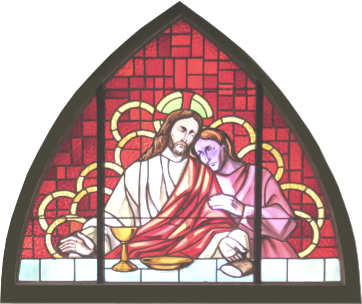I am writing this note on Holy Thursday, as we are about to enter into the holiest days of the Church year: the celebration of the Passion, Death and Resurrection of Jesus. We do so at a time when there is much suffering and insecurity in the world. The wars in Ukraine and the Middle East are so brutalizing. The deep polarization in our society is increasingly crippling. The struggle for a sense of belonging and community, coupled with internal challenges of all sorts, is the experience of so many, including so many young people today. We bring all of those struggles with us as we enter into Good Friday and Easter liturgies.
In times of great challenge, it is important to get our bearings, to remember who we are, who God is, and to see a bigger picture of what is happening in our day and in our history. Jesus’ ministry was centred on God’s great love for us human beings, and not only when we had our acts together. In Jesus, God embraces us with our struggles, the failures of our past, our doubts and insecurities, and calls us to trust in a forgiving love that can set us free. His death was a complete giving of self, revealing a boundless love beyond our imagining. From the cross, the Lord forgave those who were putting him to death, looked after his mother and disciples, and promised the repentant thief that he too would be welcomed into the Kingdom – surely a gesture that can inspire hope for all of us.
Jesus’ resurrection is God’s definitive word to a wounded and broken humanity. God’s love absorbs it all, in order to embrace us all. Not even the rejection and crucifixion of the Word who created all things is enough to overturn God’s love. There is a hope that rises from the tomb which is greater than any discouragement or despair we can feel. There is a life that rises from the tomb which can restore our weariness and alienation. There is a path which opens up from the death and resurrection which offers hope to our world, and allows us to be witnesses and instruments of a love that the world and its people so desperately need.
This Easter, I would encourage you to take some time to pray with the Resurrection appearances of Jesus: as he appears to Mary Magdalene and asks her to share the news that he has risen from the dead; as he comes to the community and then to Thomas, who struggles to believe; as he walks alongside the two despairing disciples on the road to Emmaus and reawakens their hope; and as he comes to Peter, who is out fishing, just as he was when they first met, calling forth his love, and inviting him once more to follow. Take some time to ponder those encounters, and if you can, even for just a few minutes, put yourself in the shoes of those disciples who encountered the Risen Lord; and feel anew something of the depth of joy, forgiveness and life that Jesus wishes to bestow upon each and every one of us.
Grace and peace in the Risen Lord!
✠Donald J. Bolen
Archbishop of Regina

